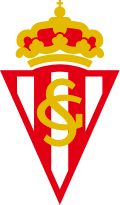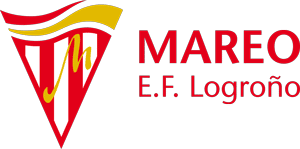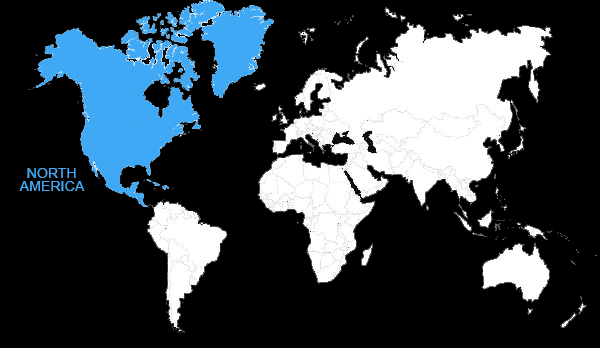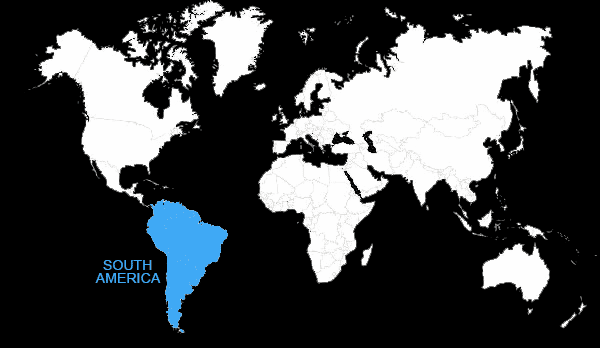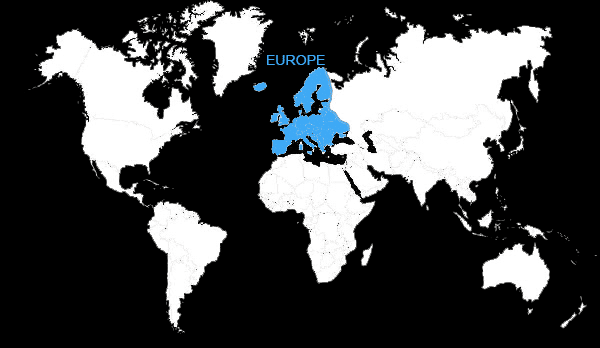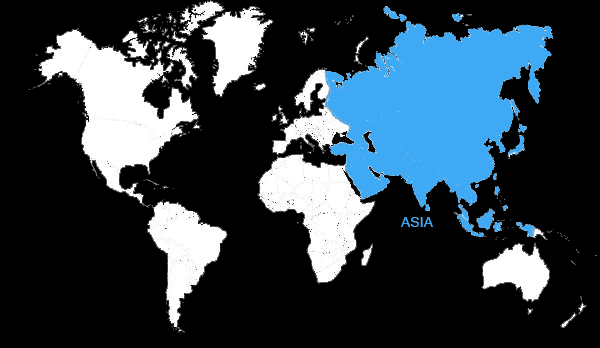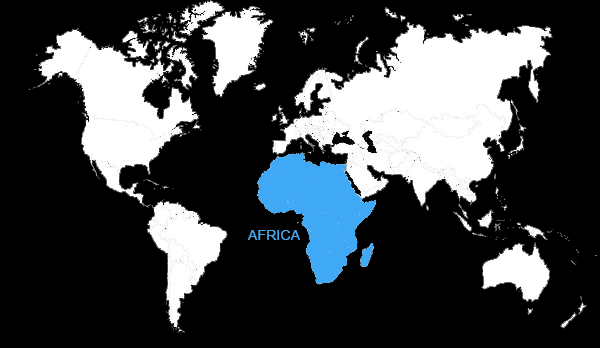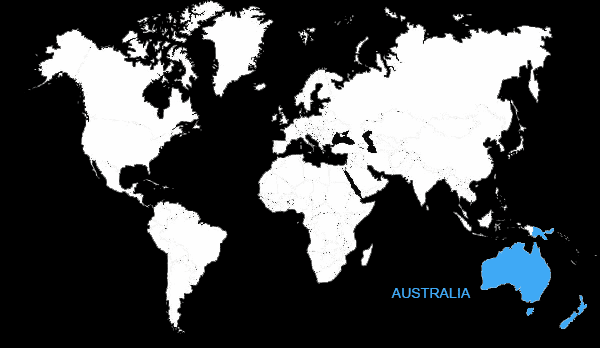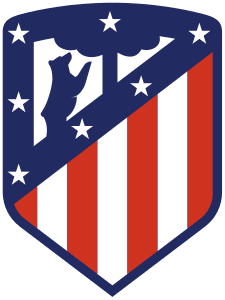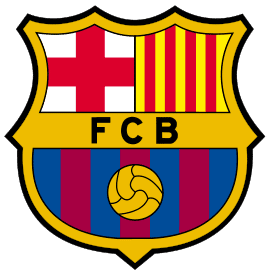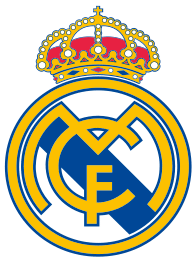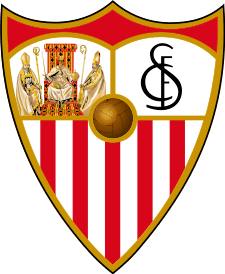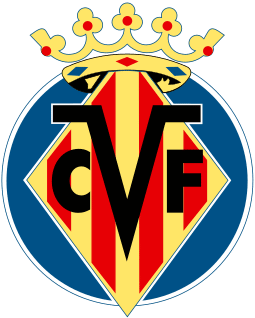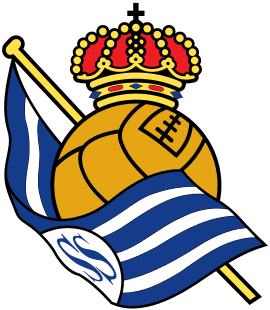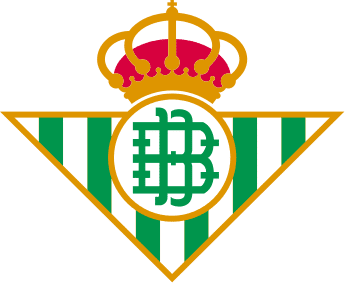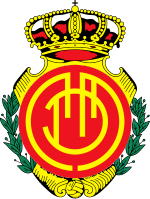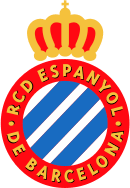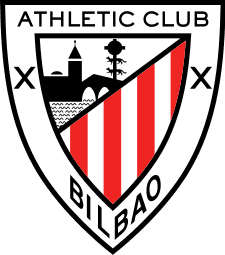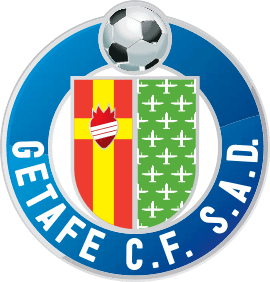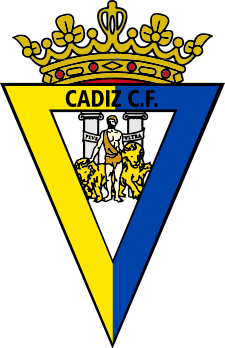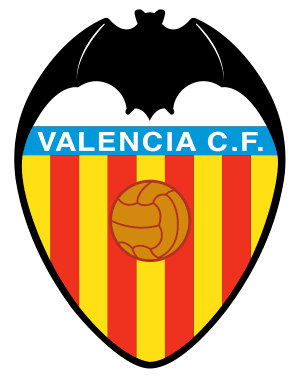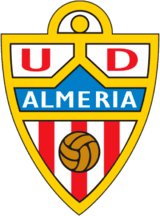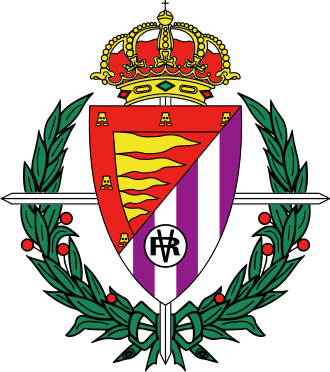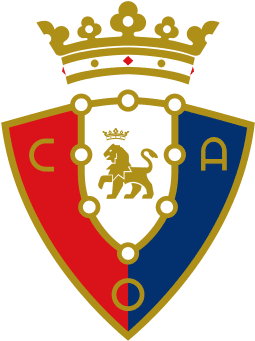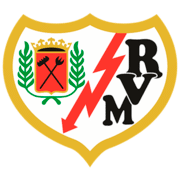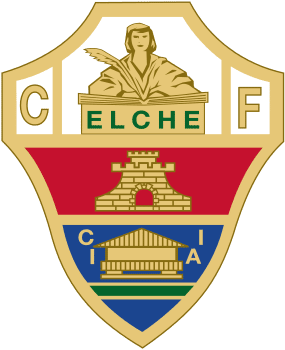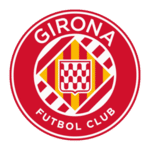Sporting de Gijón Tryouts & Club Guide: History, Stadium, Players, and More!

Welcome!
Discover the world of soccer with fcscout.com, your go-to scout for club tryout information, club guides, player profiles, in-depth product reviews, and more. We’re dedicated to exploring and revealing the best in each domain, empowering you with knowledge to make informed choices.
Thank you for being here!
Hi, I’m Carlos! A coach, sports enthusiast, and the founder of FCScout.com.
I fell in love with the game at a very young age like many of you. I’ve been following and playing soccer for many years.
Throughout my career, I always enjoyed helping soccer players chase their dreams, which is why I started this website. I wanted to reach a larger audience outside of my local area and fcscout.com was born.
This website is a platform I will be using to update club pages on any tryouts, stadiums, players, tech, and more from clubs around the world. I also create free recruitment profiles for players looking to have that extra competitive edge when reaching out to clubs.
That’s it. That’s my pitch for you to stick around (or browse the site as you please).
This is already too much text for a “see more” drop-down button thing. If you want to reach out to me, head on over to my contact page 🙂

Real Sporting de Gijón is a Spanish professional football club in Gijón, Principality of Asturias, Spain. The club competes in the Segunda División, the second tier of Spanish football.
Sporting de Gijón Youth Development System
The Sporting de Gijón Academy is composed of numerous teams that make up the Club’s grassroots football. The lower categories include Juvenil, Cadete, Infantil, Alevín, Benjamín, and Prebenjamín, in which the young footballers grow as players and people, with the support of the group of coaches who prioritize the development of the player, without obviating the competitive aspect.
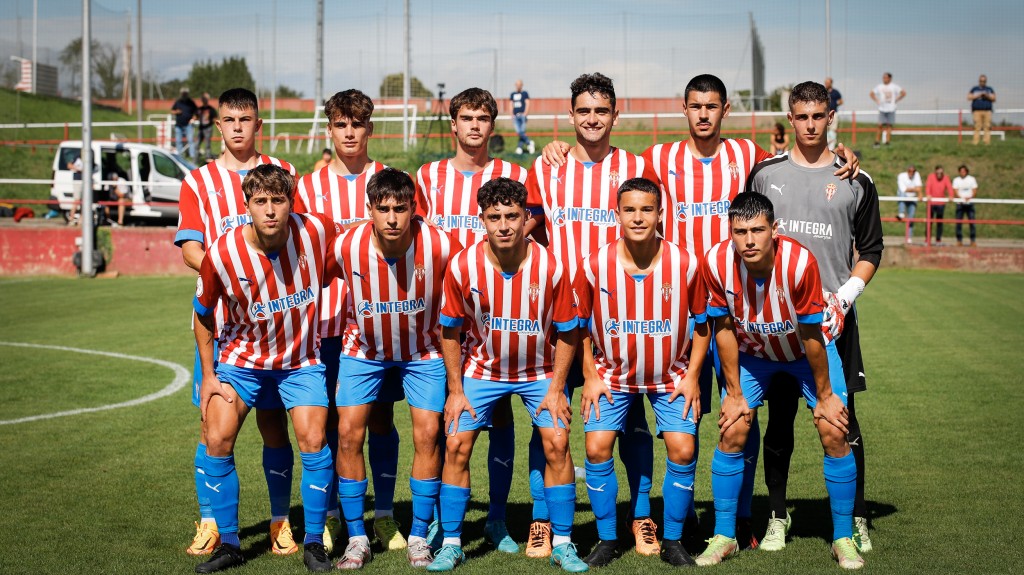
- Juvenil A
- Juvenil B
- Cadete A
- Cadete B
- Infantil A
- Infantil B
- Alevin A
- Alevin B
- Alevin C
- Benjamin A
- Benjamin B
- Prebenjamin A
Sporting de Gijón Soccer School of Mareo
At the Mareo Soccer School, Sporting de Gijón promotes the sport of soccer as an instrument for the promotion of education in values.
The soccer school has a global training system to develop technical and tactical skills, benefiting the student’s personal and sporting growth.
Two weekly sessions of 90 minutes. In addition, the training consists of:
- small workgroups
- Technicians with the highest professionalism and training
- Assistant coaches: physical trainers, specific goalkeeper coaches, and medical service
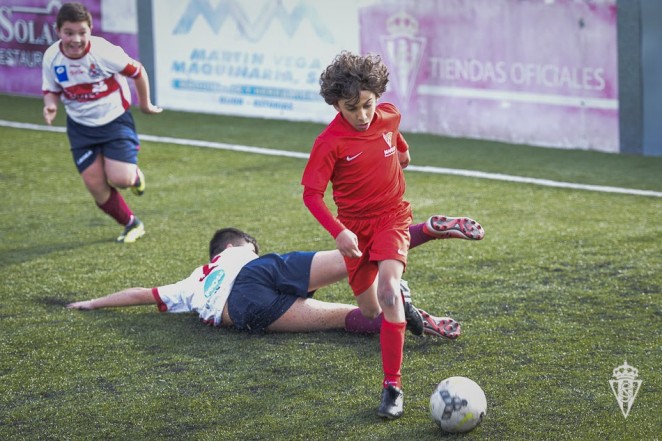
The facilities of the Mareo Football School are the jewel in Sporting’s crown, located in the Leorio area, about seven kilometers from the center of Gijón, they were inaugurated on March 28, 1978, by Pablo Porta, then president of the Royal Spanish Football Federation. Said act took place under the presidential mandate of Manuel Vega-Arango Alvaré. The purchase of the land and the works had been started by his predecessor, Angel Viejo Feliú
The Mareo facilities are built on an area of about 112,000 square meters that have four natural grass pitches, four synthetic grass pitches -three for 11-a-side football and another for 8-a-side football-, a specific training space for goalkeepers, a beach soccer field and a futsal court. All facilities have artificial lighting.
Added to this infrastructure are six team changing rooms located in the sports building and another four in the annexes of field number five. There are also changing rooms for referees and six more for coaches and assistants.
A polyclinic, a recovery room, a physical performance measurement test room, a casting and bandaging room, a medical office, a gym, as well as hydrotherapy and sauna pools are part of the long list of facilities and facilities with which They have sporting facilities.
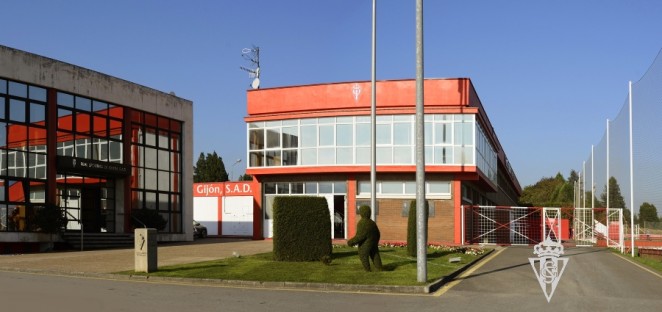
Mareo is not only in the rolling of the ball, but it is also a place designed to host the concentrations of the first team. For this, it has an entire floor in the sports building, with a large living room, equipped with a games area, 14 double rooms, a kitchen, and a dining room.
In the sports building, there are also specific offices, a sportswear store, a laundry room, and a classroom. A whole world…, a place of worship for football and for the training of young footballers. A football university from which a large number of graduates have already left who have had the opportunity to obtain their doctorate with the shirt of the Spanish team in World Cups, European Championships, and Olympic Games.
Respectful of its rural environment, the cafeteria is made of wood. It is a quadrangular building, which stands out for its functionality. There is also a small boutique, as a complement to the one the club has in the commercial area of the city.
But Mareo is more than just a physical appearance. His first objective is to provide sports and human training to young people who have the right conditions to play soccer. But the teaching that is imparted is not limited exclusively to physical and technical conditioning. The Dizziness School also aims to provide human formation, so that young people know how to face life with the same joy and responsibility with which they face sports competition.
To learn more about the soccer school, please click here.
Sporting de Gijón Recruitment Trials
At the time of this writing, there are no official publications on Sporting de Gijón trials. Please come back at a later date while we monitor this club or click here to visit their official youth academy news page for the latest updates.
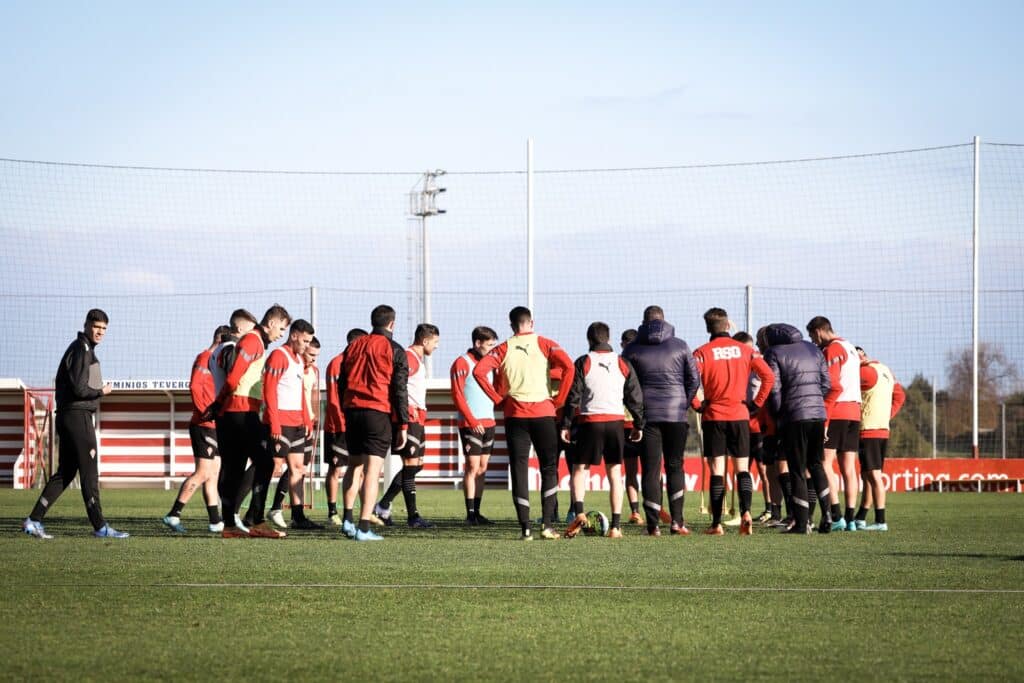
EXPLORE MORE CLUBS!
Explore more professional clubs by continent.
Sporting de Gijón History
Anselmo López served as the first club president when Sporting Gijonés was founded in 1905 and given the name Sporting Gijonés at that time. The club played their first game on the 18th of August in 1907, which was a match versus Sport Ovetense. As a result of the demise of other local teams like as Gijón Sport Club (which was established in 1903) and Sportiva Gijonesa, Sporting Gijonés was able to become the most successful team in the city. The adjective “Real” (Spanish meaning Royal) was added to the club’s name in 1912, when King Alfonso XIII accepted the club’s royal sponsorship on behalf of the Spanish Crown. This resulted in the club being given the name Real Sporting Club Gijonés.
In 1914, Sporting Gijón won its first Regional Championship of Asturias. This achievement was replicated two years later when the club started taking the initial steps toward purchasing El Molinón, where Sporting Gijón began to play its games in 1915. On April 2, 1916, a fresh modification was implemented to accept the current denomination of Real Sporting de Gijón. This event had happened. As a result of the club’s victory in the Regional Championship, it was granted entry into the Copa del Rey on April 24, 1917. However, the club was defeated by Arenas Club de Getxo in the first round of competition. Both games were lost by Sporting, with a score of 0–1 in Gijón and 0–7 in the Basque Country.
Manolo Meana was the first player from Sporting Gijón to be called up to the Spanish national team, and he made his debut with the squad on October 9, 1921, when Spain faced Belgium in a friendly match. In 1929, Sporting Gijón joined Segunda División. The club’s inaugural year of competition resulted in a fourth-place overall standing.
Real Gijon was the official name of the team from 1940 until 1970 because of a temporary law that prohibited the use of foreign words in the names of football clubs. This law was eventually repealed.
As a result of the club’s dominance in the 1943–1944 Segunda División season, it earned the right to play in La Liga for the first time in 1944. At Sarriá, on September 24, 1944, the club played its debut game in the first division, which was a match versus Espaol. The game ended with neither team scoring any goals. Gundemaro scored the squad’s first goal in the next match against Deportivo de La Corua, but the team did not record its first victory until week 6, when it defeated Atlético Aviación by a score of two goals to zero. As of right moment, Sporting is still in contention for a spot in La Liga.
Up to the 1970s, Sporting played in both the First and Second Divisions, playing in the Second Division for the all of the 1960s. The club was demoted to Tercera División at the conclusion of the 1960–1961 Segunda División season after suffering a loss in the relegation playoffs against Burgos. However, because Condal resigned in order for Sporting to continue competing in the second tier, the club was given the opportunity to compete in a repechage playoff against Sevilla Atlético and Castellón. The first encounter between the two teams ended in a 3–3 draw for Sporting and Castellón. A toss of the coin would determine who would emerge victorious from the competition. Pepe Ortiz, the captain of the Sporting team, decided to go with tails for the third time in a row during the game’s coin toss, which resulted in the team’s victory over the competition. In the championship game to determine who would stay in the division, Sporting won by a score of 2–1 against Sevilla Atlético.
Despite being demoted to the Segunda División in 1975, the team would start consolidating its position in La Liga in 1970 after regaining the right to use the name “Sporting.” This year would mark the beginning of the club’s golden age, which would last for many years.
Soon after being promoted in 1976, Sporting Gijón began the 1977–1978 season undefeated through their first eight matches. This streak continued all the way through the season. In the end, the Rojiblancos ended in fifth place, which was good enough to earn them their first qualification for the UEFA Cup.
A number of players, including Quini, Cundi, Enzo Ferrero, Antonio Maceda, and others, would go on to make club history during the 1978–1979 season, which is widely regarded as the club’s most successful campaign to date. El Molinón played host to the first round of the UEFA Cup on September 13, 1978, when Sporting emerged victorious over Torino by a score of three goals to zero. Sporting was knocked out of the competition by Red Star Belgrade in the second round. The team ended the first half of the La Liga season on top of the table, level in points with Real Madrid; however, a loss to the Merengues by the score of 0–1 irreparably derailed their chances of winning the championship.
The year 1981 marked the first time that the club participated in the Cup Final. Barcelona came out on top with a 1–3 victory against Sporting in the match that was played at Estadio Vicente Calderón on the 18th of June 1981. Quini, a player who once played for Sporting Gijón and is widely regarded as the most important player in the history of the club, scored two goals for the blaugranas. 1982 was another banner year for Sporting, but this time Real Madrid came out on top, defeating the rojiblancos 1-0. During the 1980s, Sporting made a total of four more appearances in the UEFA Cup, but they were all unsuccessful as they were ousted in the first round each time. On September 16, 1987, Sporting won the first leg game against AC Milan, which was coached by Arrigo Sacchi. However, Sporting’s chances were eliminated when they lost the second leg game 0–3 in Italy. The previous season, 1986–1987, saw Sporting defeat Barcelona at Camp Nou by a score of 0–4, which was the club’s largest win on the road in the history of La Liga. Manuel Vega-Arango, who had served as president since 1977, stepped down from his post a year earlier.
The season 1991–1992 was the final year that the team competed in the UEFA Cup. After a penalty shootout, Sporting Gijón eliminated Partizan from the competition, although they were unable to go past the first round against Steaua București.
On October 6, 1992, Sporting Gijón competed in their 1,000th La Liga game as a member club.
Real Sporting de Gijón changed its status to that of a Sociedad Anónima Deportiva in 1992, as required by law. Since that time, it has been known by its current, official name, which is Real Sporting de Gijón, S.A.D. The club’s internal financial difficulties, together with the departure of several prominent players, is the catalyst for the club’s downturn, which ultimately results in the team falling to lower positions in La Liga. After a disastrous 1997–98 season in which Sporting only earned 13 points (two wins and seven draws in 38 games), the club was relegated to Second Division, bringing an end to its 21-year continuous stretch in La Liga. During that time, Sporting had remained in La Liga thanks to a victory over Lleida in the relegation playoffs during the 1994–1995 season.
The club was compelled to sell the Escuela de Ftbol de Mareo to the Municipal Town Hall for the price of €12 million in August of 2001 since the club was in danger of going out of business as a result of the financial crisis that occurred in the 2000s. After the departure of David Villa to Zaragoza and the nomination of Marcelino Garcia Toral as head coach, who had previously been responsible for demoting the reserve team to Tercera División, the 2003–2004 season began with a number of questions marks hanging over it. However, the team ultimately finished in fifth place, which was much below their expectations given how close they were to achieving their aim of promotion to La Liga. Real Sporting came perilously close to being administratively demoted at the end of the 2004–05 season after amassing debts of 51 million euros during its worst years.
The club started the 2007–08 season undefeated through the first nine games of the season. Manuel Preciado had been the head coach of the squad since 2006, when he took over the position. Following a victory over Eibar by a score of 2-0 in the championship round, the club was finally able to regain its position in La Liga on June 15, 2008.
In the first season after its comeback, the 2008–09 campaign, Sporting allowed 20 goals to be scored in its first five matches, but it still managed to obtain significant victories such as the one at Mestalla against Valencia by a score of 3–2 or the one against Sevilla by a score of 1-0. During a season in which Sporting broke the record for most consecutive games without a draw in a single season in the La Liga (a 1–1 finish with Athletic Bilbao on 3 May 2009), the team avoided relegation in the final round with a win by a score of 2–1 against Recreativo de Huelva, who were the last team to qualify.
They defeated Real Madrid 1-0 at Santiago Bernabéu Stadium on April 2, 2011, putting an end to Real Madrid manager José Mourinho’s nine-year undefeated streak in the league at home.
The club’s performance during this season, in which it finished in the 10th position, was the best it had been since the time it was last promoted.
The squad failed to win any of its first eight games during the 2011–12 season, and it finished the year in one of the two places that determine whether or not it would be relegated. Manolo Preciado was relieved of his duties as manager on January 31, 2012, following a 5–1 defeat at the hands of Real Sociedad. After over six years with the club and receiving a great deal of praise from all of its patrons, the Cantabrian coach decided to step down from his position. The purpose of hiring Javier Clemente was to prevent the club from falling into relegation; nevertheless, while keeping the possibilities alive until the very end of the season, he was unsuccessful, and the team was doomed to fall back into relegation. This led to a fresh financial crisis at the club.
After José Ramón Sandoval was let go from his position as head coach on May 4, 2014, Abelardo Fernández was promoted to take his place. Abelardo was unable to earn promotion to La Liga in his first season with the first squad after being ousted by Las Palmas in the semifinals of the play-offs. This was Abelardo’s first season with the first squad.
Despite this, the management decided to extend his contract for a further two years. During the 2014–15 season, Sporting was not permitted to sign any player out from the reserve team due to non-payments. Despite this disadvantage, Sporting once again returned to La Liga with a squad that included 17 players who had previously played for the club’s reserve team or one of its youth teams. After suffering only two defeats throughout the entirety of the season, Sporting was able to advance to the next round of the competition by claiming a 3–0 victory over Real Betis at the Benito Villamarn stadium and benefiting from a late equalizer conceded by rival Girona in their separate match against CD Lugo, which just occurred as Sporting’s game was coming to a close.
The previous season’s holdup in making player payments resulted in Sporting being penalized for the same violation during their comeback campaign the following year. The club was only permitted to recruit three new under-23 players without previous experience in La Liga on loan. These players came from Roma, Barcelona, and Real Madrid respectively. Antonio Sanabria, Alen Halilovi, and Omar Mascarell were the players.
At the beginning of the season, the team played Real Madrid, led by Rafa Benitez, and played to a scoreless draw at El Molinón. Despite having an unpredictable road, Sporting was able to secure highly significant victories such as a 1–0 victory at Mestalla, a 2–1 victory over Atlético Madrid, and a 5–1 victory over Real Sociedad. The club eventually escaped relegation in the last round after beating Villarreal by a score of 2–0 and taking advantage of the win that Real Betis earned against Getafe. Prior to that, the team had earned a draw away at Getafe with the score 1–1. The tenure of Abelardo came to an end in January of 2017, when he departed the club after gaining only five points in 15 matches. Despite replacing the manager, the team was eventually relegated back to the Segunda División, marking the end of Abelardo’s time with the club.
Sporting stayed in the Segunda División over the subsequent years, and they did not participate in the promotion play-offs until 2018. The club’s standing continued to deteriorate until 2022, when it only just managed to avoid being demoted to the third level. Abelardo made a comeback and secured his position in Segunda during the course of the last four rounds.
This transaction, which took place on June 28, 2022, was the second biggest sale of a club in Spain and was completed by the main shareholder, Javier Fernández, who sold the club to the Mexican business Orlegi Sports for €43 million. Alejandro Irarragorri was the club’s first President from outside the United States.
Sporting de Gijón Stadium
Estadio El Molinón, formally Estadio Municipal El Molinón-Enrique Castro “Quini”, is a soccer stadium in Gijón, Asturias, Spain. The soccer club Real Sporting de Gijón calls the stadium their home field. El Molinón is the 20th largest stadium in Spain and the second largest stadium in Asturias. It has a capacity of 29,029 seats and is the second-largest stadium in Asturias.
El Molinón was the first location in Spain where professional football was played. Since it is situated on the former grounds of a watermill—hence its name, which literally translates to “great mill” in Spanish—it has been in operation since at least 1908, and its name comes from that fact.
In 1917, Real Sporting began making El Molinón their official home field for matches. Real Sporting and Arenas Club de Getxo played each other in the first first official match of the Copa del Rey on April 22, 1917. The match was a part of that year’s competition. Arenas won 0–1. The initial phase of the stadium’s extensive reconstruction was brought to a successful conclusion on August 5 of the same year.
The final of the 1920 Copa del Rey was played at El Molinón on May 2, and it was won by Barcelona with a score of 2–0 against Athletic Bilbao.
In 1924, Real Sporting made the purchase that made them the owner of El Molinón, a stadium in Madrid. A fire in 1931 completely destroyed the main stand, although it was quickly rebuilt after the blaze. Due to Real Sporting’s precarious financial position in 1944, Gijón City Hall made the decision to acquire El Molinón.
El Molinón hosted its first ever night encounter versus Mestalla in 1968, the same year that four floodlights were erected at the stadium.
On April 11, 1969, the stadium was legally sold to the city Town Hall for the sum of 30 million pesetas as a result of the financial difficulties that Real Sporting was experiencing at the time.
On November 30, 1969, El Molinón became the first stadium in Spain to have a roof over its whole playing surface. On January 28, 1970, the first sporting event to be broadcast on television in Spain took place at El Molinón. Osasuna was beaten by Real Sporting by a score of 3–0. In addition, all of the club’s UEFA Cup home matches were played in this stadium, including the one on September 30, 1987, when they defeated A.C. Milan by a score of 1-0.
On June 28, 1995, Real Sporting broke the record attendance for the club at El Molinón with 42,000 spectators seeing them play Lleida in the relegation playoffs. This event took place to determine who would be relegated.
El Molinón made preparations in 1997 and 1998 to comply with the new security regulations established by UEFA and FIFA, which stipulated that all spectators must be seated and that all barriers must be eliminated. The capacity of the stadium was cut in half, going from 42,000 to 25,885 seats. Despite this, there have been discussions of renovating and enlarging the stadium in the near future. As a result of the construction that took place between 2009 and 2011, El Molinón was able to accommodate 29,029 guests.
On February 28, 2018, just one day after Real Sporting’s all-time leading scorer Quini passed away, the City Council of Gijón unanimously voted to rename the stadium as Estadio El Molinón-Enrique Castro “Quini” in his honour. This took place just one day after Quini’s passing.
Three months later, after a popular effort, the gate 1 of the stadium was renamed as former goalkeeper Jesús Castro, brother of Quini.
El Molinón’s match versus Valencia in the round of 16 of the Copa del Rey was the first occasion the video assistance referee was utilized. The match took place on January 8, 2019. However, given in that season it was only utilized in La Liga, the stadium would not have again the VAR until the 2019–20 season.
The stadium held its first women’s football match ever on 21 April 2019. There were 9,700 fans in attendance for the local derby that was played between Real Sporting and Gijón FF.
